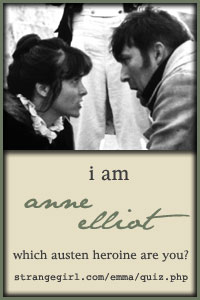

Overheard at the farmers market: “Pimientos de Padron are so 2007.”
Beyond reach? Beyond tasting? Like Mallorca itself, which has receded into memory. The hilltop of the writers workshop which I can only visit again in the pages of the mystery I started writing this summer. Goat Song, maybe—
“Tragedy (Ancient Greek: τραγῳδία tragōidia, "goat-song") is a form of art based on human suffering that offers its audience pleasure.
The mystery begins something like this:
Isabel would remember ruefully that her first reaction to the body in the swimming pool on the Mallorcan hilltop was one of aesthetic horror. She loved that pool, with its teal green tiles and terra cotta lip, the tiles supposed to have been hand-painted by some artist the owner knew in a remote village somewhere in the middle of the island, and she'd taken to swimming there every morning before coffee, before the others got up and started muddying the day. Only this morning, another otherwise perfect September day in the Mediterranean, someone had beaten her to it. Someone with excruciating taste in color.
She was indignant in the next instant, coming down the matching green and terra cotta steps toward the unexpectedly—and thoroughly—inhabited pool, down from the side terrace paved with honey-colored stone where the writers gathered over Spanish wine at the end of the day and watched the sun go down into the sea behind little Dragonera island just offshore. She thought instinctively about retreating to her room in the main caseta rather than having to interact with anyone at that hour, her private time, her almost holy ritual hour alone in the blessed coolness and quiet of the early morning not usually troubled even by the drift of goat bells from the pine- and olive-canopied valley below.
And then logic kicked in, though shakily, in fits and starts, as she continued down the steps from the terrace in spite of her resistance to approaching any closer. The body was clearly dead, in its sodden garish-patterned jumpsuit, the milk-green water of the pool holding it up for her to see: a picture in a frame. Some kind of awful modern art, the kind that Isabel couldn’t abide, vastly different from the calm Medieval compositions she’d studied in college or the capacious landscapes her famous father painted in his studio back in California, a million miles away. She felt a pang for him, Charles San Gabriel Girard, and for her mother, Mia, who she couldn’t even reach by phone from here. She was essentially on her own on this remote hilltop, responsible for the well-being of the writing group—and now here was this body to disrupt things utterly. It was hardly fair, was her next thought, illogical again. She would have to do something about it. And she had no idea what, beyond summoning help. A Master’s degree in Art History hardly prepares one to deal with dead bodies of any ilk (only the odd arrow-pierced martyr, beatific in his painted pain), let alone students in your charge in foreign countries.
But if you came right down to it, could they really be more difficult than live ones? With that half-serious question, her noted pragmatism finally raised its level head, and she considered the situation with something like coherence. The dead woman, she’d known at once on some subliminal level (thus increasing her annoyance at finding her in the lovely pool during the quiet hour of the Mallorcan morning), was someone everyone had been wishing dead for the entire week of the Mystery Writers Workshop—since the first hour of the first day, when she arrived in a cloud of Obsession out of some gorgeous young Spaniard’s Bugatti convertible and before she'd even put a cinnamon-brown pedicured foot on the steps up to the caseta launched into a loud litany of complaint.
Stay tuned for the rest . . .
images: Christie B. Cochrell, Mallorca



















No comments:
Post a Comment